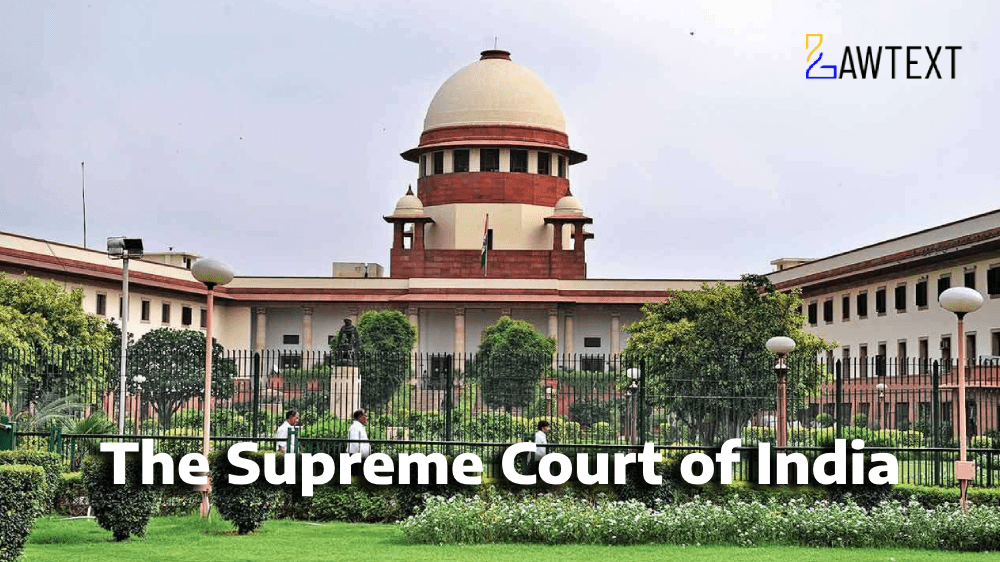

Maintainability of Writ Petition: The Court held that the Writ Petition is maintainable as Article 212(1) does not bar judicial review of legislative decisions affecting Fundamental Rights. (Para 19-23)
Proportionality of Punishment: The Court held that it can review the proportionality of punishment imposed by the House, especially when it affects Fundamental Rights and democratic representation. (Para 56-64)
Disproportionate Expulsion: The Court found the expulsion of the Petitioner disproportionate to the misconduct, particularly in light of the two-day suspension given to Md. Sohaib. (Para 75-77)
Quantum of Punishment: Invoking Article 142, the Court modified the expulsion to a suspension period already undergone (7 months) and reinstated the Petitioner as an MLC. (Para 86)
Constitution of India (COI):
Article 32 – Writ jurisdiction invoked by the Petitioner.
Article 212(1) – Validity of proceedings in the Legislature.
Article 142 – Supreme Court’s power to do complete justice.
Article 14 – Right to equality, proportionality of punishment.
Article 21 – Right to life and personal liberty, including legislative representation.
Bihar Vidhan Parishad – Rules of Procedure and Conduct of Business:
Rule 10, Chapter 36 – Penalties for misconduct, including censure, reprimand, suspension, and expulsion.
Nature of the Litigation:
The Petitioner, Dr. Sunil Kumar Singh, a Member of the Bihar Legislative Council (MLC), challenged his expulsion by the Ethics Committee of the Bihar Legislative Council (BLC) for alleged unparliamentary conduct.
Remedy Sought:
The Petitioner sought quashing of the expulsion order and reinstatement as an MLC, arguing that the punishment was disproportionate and violated principles of natural justice.
Reason for Filing:
The Petitioner was expelled following a recommendation by the Ethics Committee for using derogatory language and obstructing House proceedings. The Petitioner contended that the process was flawed and the punishment excessive.
Background:
The Petitioner, a member of the Rashtriya Janata Dal (RJD), was elected to the BLC in 2020. During a session in February 2024, he and another MLC, Md. Sohaib, used indecent language against the Chief Minister, leading to complaints and subsequent disciplinary action. While Md. Sohaib expressed remorse and received a two-day suspension, the Petitioner refused to cooperate with the Ethics Committee, leading to his expulsion.
Whether the Writ Petition is maintainable under Article 212(1) of the Constitution, which bars judicial review of legislative proceedings on procedural grounds? (Para 9, 10-23)
Whether the Court can review the proportionality of the punishment imposed by the House? (Para 24-64)
Whether the Petitioner’s expulsion was disproportionate to the alleged misconduct? (Para 66-77)
Whether the Court can determine the quantum of punishment under Article 142 of the Constitution? (Para 78-87)
Petitioner’s Arguments:
The expulsion violated principles of natural justice as the Petitioner was denied access to evidence. (Para 4a)
The Ethics Committee preponed the hearing without notice, condemning the Petitioner unheard. (Para 4b)
The punishment was disproportionate compared to the two-day suspension given to Md. Sohaib. (Para 4d)
The expulsion infringed the Petitioner’s Fundamental Rights under Articles 14, 19, and 21. (Para 4e)
Respondents’ Arguments:
The Writ Petition is not maintainable under Article 212(1), which bars judicial review of legislative proceedings. (Para 5a)
The House has the prerogative to regulate its business, and the Court cannot review the proportionality of punishment. (Para 5b)
The Petitioner was given multiple opportunities to present his case but chose to defy the Ethics Committee. (Para 5c)
The Petitioner’s conduct was egregious, and expulsion was justified given his history of unparliamentary behavior. (Para 5f)
Judicial Review of Legislative Actions:
Article 212(1) does not bar judicial review of legislative decisions that affect Fundamental Rights or are arbitrary, irrational, or unconstitutional. (Para 14-16)
Proportionality in Legislative Punishment:
The doctrine of proportionality is a cornerstone of constitutional law, and courts can review the proportionality of punishments imposed by legislative bodies. (Para 25-55)
Exceptional Use of Article 142:
The Supreme Court, under Article 142, can modify punishments in exceptional cases to ensure justice, especially when remanding the matter would cause undue delay. (Para 81-87)
Proportionality, Legislative Privilege, Expulsion, Suspension, Article 142, Natural Justice, Fundamental Rights, Judicial Review, Ethics Committee, Bihar Legislative Council.
Citation: 2025 LawText (SC) (2) 250
Case Number: WRIT PETITION (CIVIL) No. 530 OF 2024
Date of Decision: 2025-02-25
Case Title: Dr. Sunil Kumar Singh Versus Bihar Legislative Council (Through Secretary) and Ors.
Before Judge: [Surya Kant J , Nongmeikapam Kotiswar Singh J.]
Appellant: Dr. Sunil Kumar Singh
Respondent: Bihar Legislative Council (Through Secretary) and Ors.